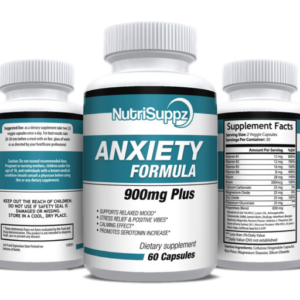30 Aug Understanding Post-Traumatic Stress Disorder (PTSD)
Understanding Post-Traumatic Stress Disorder (PTSD)
Post-Traumatic Stress Disorder (PTSD) is a mental health condition that can develop after experiencing or witnessing a traumatic event. It affects many individuals, impacting their daily lives and overall well-being. At Nutrisuppz, we aim to provide a comprehensive understanding of PTSD, its symptoms, causes, and effective strategies for managing and overcoming this condition. This blog post delves into the nature of PTSD, its impact, and practical approaches to support recovery.
What is Post-Traumatic Stress Disorder (PTSD)?
PTSD is a mental health condition triggered by experiencing or witnessing a traumatic event, such as a natural disaster, serious accident, terrorist attack, or personal assault. Individuals with PTSD often relive the traumatic event through flashbacks or nightmares and may experience severe anxiety and emotional distress. The condition can lead to difficulties in daily functioning, relationships, and overall mental health.
PTSD is characterized by a range of symptoms that persist long after the trauma has ended. It is not uncommon for individuals to experience some level of distress after a traumatic event, but PTSD is diagnosed when these symptoms persist for more than a month and interfere with daily life.
Common Symptoms of PTSD
PTSD manifests through various symptoms that can be categorized into four main types: intrusive memories, avoidance, negative changes in mood and thinking, and changes in physical and emotional reactions. Common symptoms include:
- Intrusive Memories: Flashbacks, distressing memories, or nightmares about the traumatic event.
- Avoidance: Avoiding places, people, or activities that are reminders of the trauma, or avoiding discussing the event.
- Negative Changes in Mood: Persistent negative emotions, feelings of hopelessness, or difficulty experiencing positive emotions.
- Changes in Reactions: Hypervigilance, excessive startle response, irritability, or difficulty sleeping.
These symptoms can be intense and disruptive, impacting various aspects of life, including work, relationships, and personal well-being.
Causes and Risk Factors for PTSD
PTSD can result from exposure to traumatic events, but not everyone who experiences trauma will develop the disorder. Several factors can contribute to the likelihood of developing PTSD, including:
- Severity of the Trauma: The intensity and duration of the traumatic event can influence the development of PTSD.
- Personal History: Previous exposure to trauma, childhood adversity, or a history of mental health issues can increase the risk.
- Biological Factors: Genetic predisposition and neurobiological changes may play a role in the development of PTSD.
- Support Systems: Lack of social support or ongoing stress can affect the ability to cope with trauma.
Understanding these factors can help in identifying individuals at risk and developing effective prevention and intervention strategies.

Effective Strategies for Managing PTSD
Managing PTSD often involves a combination of therapeutic approaches and self-care practices. Key strategies include:
Therapy: Cognitive-behavioral therapy (CBT), particularly trauma-focused CBT, is effective in helping individuals process and reframe traumatic experiences. Eye Movement Desensitization and Reprocessing (EMDR) is another evidence-based therapy that helps individuals process trauma.
Medication: Certain medications, such as selective serotonin reuptake inhibitors (SSRIs), may be prescribed to manage symptoms of PTSD, including anxiety and depression.
Self-Care: Practicing relaxation techniques, such as deep breathing, mindfulness, and progressive muscle relaxation, can help manage stress and anxiety.
Support Groups: Joining a support group or connecting with others who have experienced similar trauma can provide emotional support and reduce feelings of isolation.
Healthy Lifestyle: Maintaining a healthy lifestyle through regular exercise, a balanced diet, and adequate sleep can support overall mental health and well-being.
Implementing these strategies can help individuals manage PTSD symptoms and improve their quality of life.
Seeking Professional Help
If you or someone you know is struggling with PTSD, seeking professional help is essential. A mental health professional can provide a comprehensive assessment and develop a personalized treatment plan. Early intervention and appropriate treatment can significantly improve outcomes and support recovery.
For those experiencing severe symptoms or crisis situations, immediate assistance from a healthcare provider or crisis counselor is crucial. Support is available, and effective treatment can help individuals regain control and find relief from PTSD.
Understanding Post-Traumatic Stress Disorder (PTSD)
Conclusion
Understanding PTSD and its impact is vital for effective management and recovery. By recognizing the symptoms, exploring underlying causes, and implementing effective strategies, individuals can take proactive steps toward healing and improving their quality of life. At Nutrisuppz, we encourage a holistic approach that includes lifestyle changes, relaxation techniques, and professional support to foster a healthier and more balanced life.



No Comments